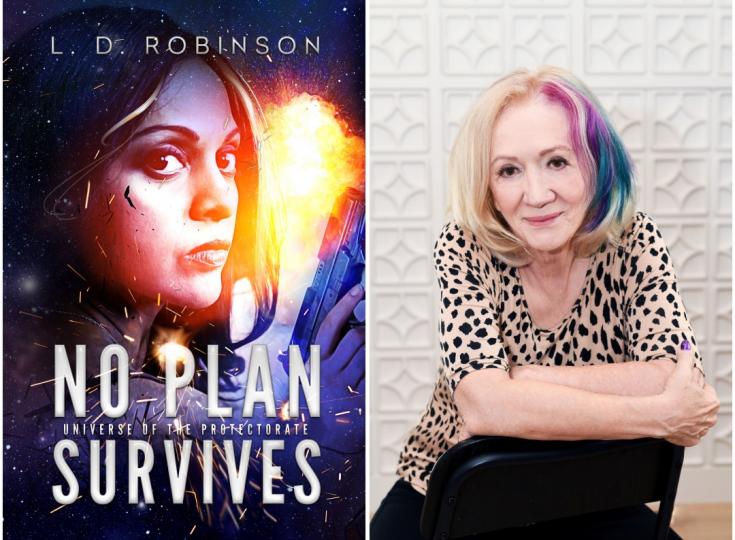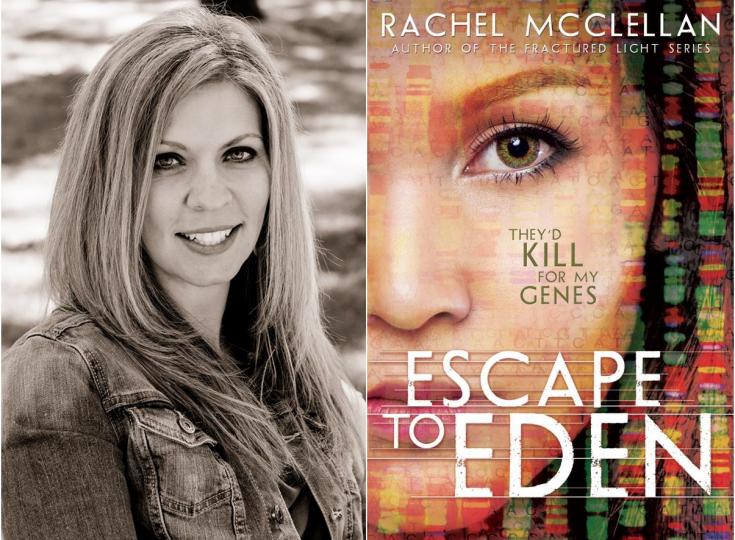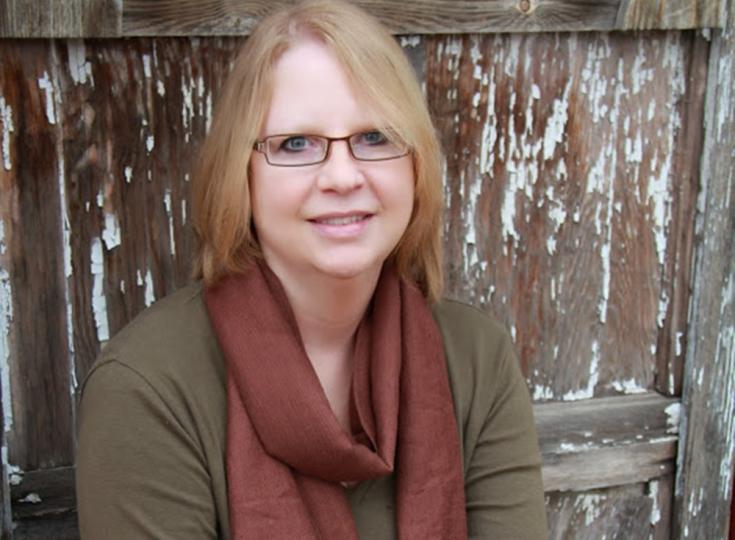L. D. Robinson - Alien Cultures on the Brink of War

LeAnn Robinson has been writing since she was in the first grade, and she sold her first book to a schoolmate for ten cents when she was in the third grade. Always making up stories, she has written tons and read tons more. She also spent thirty years in the service, 2 in the U.S. Air Force (enlisted) and 28 in the U.S. Army (officer). She retired as a colonel. She now lives in Little Elm, Texas, just a little north of Dallas, where she spends time with her family, her writing, and her friends. As our Author of the Day, Robinson tells us all about her book, No Plan Survives.
Please give us a short introduction to what No Plan Survives is about.
This book follows humanity’s attempts to help its new space-faring allies in their fight against a species who wants to destroy them. But as with any relationship, there are difficulties, misunderstandings and disagreements. Understanding someone else’s point of view is hard enough on Earth, but you add an alien culture and different abilities into the mix, and things can go badly very quickly. Add to that an enemy that seems unbeatable, and the space battles turn deadly.
What inspired you to write about two alien cultures on the brink of war over Earth?
I started out with what they call the Fermi paradox. A strong belief among scientists was that, given how many possible planets there were in the galaxy, aliens would have had ample time to colonize the entire Milky Way. Then, a famous scientist named Enrico Fermi once said, essentially, if that is the case, then “Where is everybody?” Well, there are a lot of conjectures about what is the solution to the Fermi paradox, but I came up with my own—a group of aliens who are preventing technologically advanced space-faring species from making contact with worlds that have intelligent species with lower technology. They are, in a way, the space police.
Tell us more about Colonel Patrice Mehta. What makes her so special?
Colonel Mehta is of that generation where women were not allowed to go into the combat arms, and she really wanted to do that. So, she picked a branch of the Army that was as close as possible, and in the meantime, she paid a lot of attention to how the combat arms fight. This gave her the tactical knowledge she needed. As far as her, personally, she is a tough nut. Early childhood difficulties hardened her into someone who wants to succeed at all costs. She is not going to give up easily, even when it looks like the odds are totally against her. But those childhood traumas also made it hard for her to trust others, or to know when she can trust, and that has been her Achilles’ heel. It’s a weakness she has to learn how to overcome to be successful in this book.
You have visited/lived in the five major continents. How did your different life experiences influence your worldview?
Traveling and living in foreign places is a world-expanding experience that I treasure. It helped me understand how others see us, and how many points of view there can be in the world. But it can also be easy to misunderstand a lot of what other peoples do, and without some guidance, they can completely befuddle a casual traveler. So I have added to the travel some serious study about other cultures, the dimensions of culture, and the ways in which they differ.
This book required you to create new cultures and worlds. How hard was this to do?
The cultures and world-building were one of the most fun things to do. In this book, you only get a glimpse of an alien planet, but the physical creation of the world is the easiest for me—partly because my major in college (geography) covered how landforms and climates are determined, and how culture overlays on that. So, to start a world, I just lay out some random tectonic plates and build the rest from there. That process makes it feel very real to me because I know that what’s there is based on real principles. The culture is more difficult, and that I build in layers.
Besides writing, what other secret skills do you have?
I do some oil painting, usually portraits.
Some people dismiss the genre as pure escapism—and nothing more. What would you say is the purpose of fantasy and sci-fi?"
These stories can be about broader issues, and often they can cover issues that are too sensitive or controversial to be discussed directly. That said, not all works in this genre get into such things. And finally, not everyone wants to read something that has been designed to make them “think.” A little escapism now and then is not a bad thing.
Readers say the book contained a couple of twists. Did you plan it all out before you started writing, or did some of it just "happen" along the way?
This particular book began in my head many years ago, as a prequel to The Children of Stone (currently book 3 in the series). But I had two problems with it. First was that the story didn’t go anywhere exciting, and second, the main character was too autobiographical. I knew I had to solve both those problems before I could begin the actual writing. That meant I had to understand the full story arc, and how the drama developed, including the surprises. This is the process that works for me. It also meant I had to develop a character that was her own person, with her own history, and her own successes and failures, all different than mine. (Well, mostly.)
What did you have the most fun with when writing this book?
The twists! Yeah, just leading the reader to expect one outcome, and then BAM! Doing that where the reader is both surprised and not angry is not easy. You have to set it up so the reader nods and say, “Oh, of course. Why didn’t I see that coming?”
No Plan Survives is part of a series. How does it tie in with the other books in the series?
Each book can function as a stand-alone. The problems that are presented are, for the most part, solved, and there are no dangling threads. The second book takes one of the more minor characters from the first and then tells her story. And it continues like that, some characters appearing in two, three, or even four books (if you count my current work in progress). You get to see them evolve over time. For example, the enemy alien ship captain in book one becomes the admiral of the fleet by the fourth book.
Do you aim for a set amount of words/pages per day?
I try to average a thousand words a day. I don’t always make it. But I want to increase that amount, since the more I can write, the faster I can get new stuff out there to my fans. At the same time, I always have to consider the quality of the writing. As long as I can do that, while keeping up my word-count, I’m happy.
What are you working on right now?
I am working on book four of the series. I hadn’t planned to ever write it, but one of my fans said she wanted to know what happened next. I’m about halfway through the manuscript first draft.
Where can our readers discover more of your work or interact with you?
All my books are on Amazon, in Kindle Unlimited, and I have an Amazon author page. Just click the author name on the book page and it will take you there. Then, if you click to follow me, you’ll get notified of new publications. My web page is ld-robinson.com, and from there you can sign up for my newsletter. That will give you an email address, so if you have any questions, you have a direct line to me. I also have a brand-new Facebook group called L.D. Robinson’s Science Fiction Focus.








